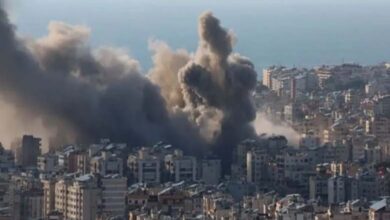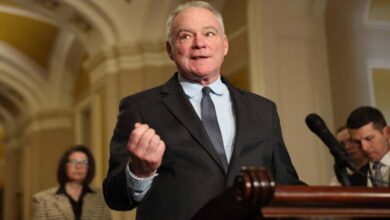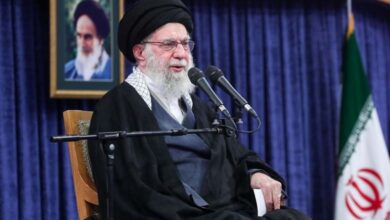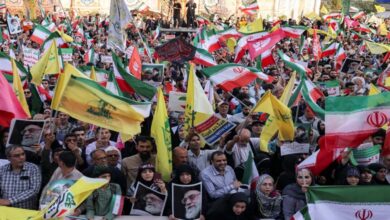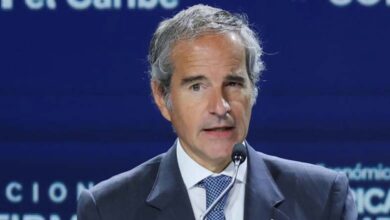Fears of a Widespread Regional War Loom over the United Nations Meeting
Western and Arab diplomats are likely to hold discussions with the Iranians in New York to prevent the regional situation from spiraling out of control.
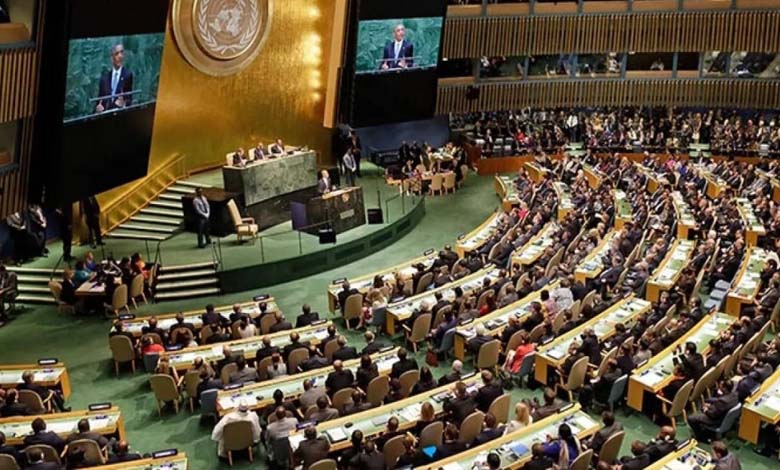
The annual United Nations meetings begin on Tuesday in New York, with fears of a regional war in the Middle East. This topic dominates this session of the General Assembly, where U.S. President Joe Biden will participate for the last time. Behind-the-scenes talks between leaders are expected to ease tensions.
-
The “gouged eyes” could have been avoided… Here’s what Hezbollah overlooked
-
The “Empire” of Smuggling and Gold: Why Lebanon Grows Poorer While Hezbollah Becomes Wealthier
Following two days of the “Summit of the Future,” dedicated to humanity’s major challenges, more than 100 heads of state and government will take to the UN General Assembly stage during a week marked by conflicts, especially in Lebanon and Gaza.
Richard Gowan of the International Crisis Group said, “This year, the focus will be on issues of war and peace,” particularly in Gaza, Ukraine, and Sudan.
Nearly a year after the war in Gaza began, following Hamas‘s unprecedented attack on Israel on October 7, 2023, there are concerns that the war could spread throughout the region.
-
Geagea attacks Hezbollah: Dragging Lebanon into an “absurd war” that did not benefit Gaza
-
Hezbollah’s Response to Chokr’s Assassination Eased Tensions
Hundreds of Israeli airstrikes on Hezbollah targets in Lebanon on Monday killed 492 people, including 35 children, according to Lebanese authorities, in the most intense bombing of this country since fighting began on both sides of the border a year ago, triggered by the war in Gaza.
Joe Biden, who reaffirmed efforts to “contain the recent escalation,” will deliver his final speech at the General Assembly on Tuesday morning. A senior U.S. official said the United States opposes a ground invasion of Lebanon and will offer “concrete ideas” to its partners this week at the UN to defuse this conflict.
-
What Weapons Will Hezbollah Use in an Open War with Israel?
-
Washington Post reveals how Lebanese pay the price for Iranian threats and ongoing Hezbollah-Israel clashes
Iranian President Masoud Bazeshkian, whose country supports Hezbollah and Hamas and who will deliver his first speech at the UN, accused Israel on Monday of seeking to “expand” the conflict in the Middle East.
The European Union’s foreign policy chief, Josep Borrell, warned on Monday that the escalating conflict between Israel and Hezbollah threatens to drag the entire Middle East into a “full-scale war.” France has requested an emergency UN Security Council meeting this week to discuss the situation in Lebanon.
Behind-the-scenes diplomacy involving Western, Arab, and Iranian officials could take place to “prevent the regional situation from spiraling out of control,” according to Richard Gowan.
-
Hezbollah Bets on Tunnel Warfare in Confrontation with Israel
-
Can Israel Deter Hezbollah? Dark Scenarios for a Potential Confrontation
UN Secretary-General António Guterres said, “Peace is under attack from all sides,” calling for an end to the “tragedies facing humanity.”
Luis Charbonneau of Human Rights Watch urged world leaders to take “bold actions” to end atrocities in the world’s worst crises and hold perpetrators accountable.
The Group of Seven (G7) warned against further escalation in the Middle East during a meeting on the sidelines of the UN General Assembly. The G7 foreign ministers warned that “no country stands to gain from further escalation” and called for an end to the “destructive cycle.”
-
12 Hours of Chaos in Israel “Saved” Hezbollah from a Potential Strike
-
Israel avoids total war in response to Hezbollah
Arab foreign ministers also condemned the Israeli aggression against Lebanon, warning that it could ignite a regional war.
At their annual meeting, the Arab ministers reaffirmed their “total solidarity with Lebanon” and condemned “the escalating Israeli aggression.” They warned that this aggression risks triggering a regional war and called for coordination with the international community to stop the war immediately.
Saudi Arabia expressed its “deep concern” over developments in Lebanon and reiterated its call for restraint. Israel, through its Prime Minister Benjamin Netanyahu, stated that its army is “changing the security balance” in northern Israel.
-
Hezbollah Focuses on Targeting Israeli Gas Fields
-
Hezbollah Conceals Its Losses with Promotional Displays of the ‘Hudhud’ Drone
On Monday evening, the Israeli army announced that its military operation against Hezbollah, named “Northern Arrows,” had targeted 1,600 Hezbollah sites on its first day.


